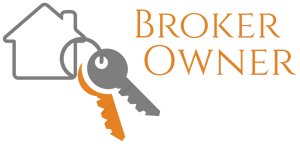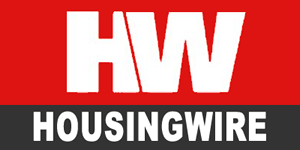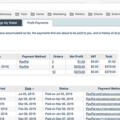Can these mortgage startups change the world, or will Zillow and Opendoor take it all?
Venture capital-backed home lending startups fill key first-time homebuyer, cash-out and investor niches. But will they really change the world, or just be niches? It’s a little of both. Let’s take a look.
Startups Love Giant Mortgage Stats
Like all venture capitalist pitches, fintech and proptech startup pitches begin with total addressable market (TAM).
Julian Hebron, Columnist
Why? Because mortgage and housing TAM is super sexy to entrepreneurs hunting for an opportunity as the economic cycle matures.
The U.S. housing market is worth $30.7 trillion, of which $11 trillion is loans on the homes and $19.7 trillion is equity owned by homeowners. And there are about 6 million homes sold and $1.6 trillion in first mortgages made each year.
If we get just 2% mortgage market share within our three-year plan, that’s $32 billion in fundings!
Laughable, I know. But this is how some startups rationalize.
In reality, it’s way harder than it looks to fund even $5 billion. It gets exponentially harder when you go above $10 billion, and then again for $20 billion.
Then if you almost double that again, you’re in the nation’s top 10 mortgage lenders, all of which took one to three decades to build organically and through mergers and acquisitions.
Startups Must Be Worth $5 to 10 Billion & Change The World
Most lenders aren’t giants, and this clashes with today’s aggressive VC quest for unicorns, which are private companies worth $1 billion or more.
The most vocal of unicorn-or-bust VCs is the indomitable Keith Rabois of Founders Fund. He’s Harvard, Stanford, PayPal Mafia, and has served as an investor and executive at LinkedIn, Square, Yelp, YouTube, Yammer, Palantir, Lyft, Airbnb, Eventbrite, Quora and more (as you’ll see below).
With that record, he’s hard to ignore when he browbeats his winner-take-all unicorn vision into you, which is:
Your startup must change an industry or the world and be worth $10 billion or more. Maybe it can be worth as little as $5 billion, but below that, you haven’t changed either.
This ethos has led to a record 199 U.S. unicorns today, up from an already high 117 just two years ago according to CB Insights and PwC.
Which VC-Backed Mortgage Models Work Best?
So which VC-backed home lending models work right now? Are they unicorns in the making?
- Non-owner-occupied models put a fintech spin on hard money, helping investors buy, fix and flip homes. Relevant product, some good brands, but a niche that doesn’t change the industry.
- Rent-to-own models keep popping up but it’s very capital-intensive to buy the homes and fund scale marketing. And nine-figure valuations given to firms focused on limited geographies don’t pencil. I’m open to being proven wrong here, but this also looks like a niche.
- Shared appreciation models are the most consumer-relevant so far. To summarize all the math, these companies give homebuyers up to half of their down payment with no interest or loan payments in exchange for about one-third of the home’s appreciation later on.
Unison and Andreesen Horowitz-backed Point are the two leading players, but Unison is the OG. They were founded as FirstRex in 2004 and rebranded to Unison in 2016.
Capital markets participants understand how Unison fits within the traditional mortgage mix, and they’re entrenched with lender salesforces, which helps control consumer-direct marketing spend.
Which VC-Backed Housing Models Will Change The World?
Shared appreciation is relevant stuff for the right consumer profiles, but not the stuff of world-changing unicorns.
Happy to eat those words later, but I stand by them now for two reasons:
- Niches matter. I disagree with Rabois that companies must be unicorns to change lives. Also maturing unicorns will need great niche companies to buy.
- Shared appreciation is smarter than a reverse mortgage for cash out as the home-owning population ages. Maybe still a niche, but a great one.
Niches won’t change our housing finance world, but let’s bring it home with a VC-backed model that might.
One-Stop-Shop Homeownership Will Indeed Change The World
Now back to Rabois for what may be his magnum opus: Opendoor, the pioneer of the instant-buyer (iBuyer) model.
Now worth roughly $4 billion, Opendoor is on it’s way to becoming a one-stop-shop for home buying, owning and selling.
The company he co-founded is making home buying and selling like trading your car.
It’s not just about mortgage or real estate fees, it’s monetizing the whole homeownership lifecycle. Despite the monetization complexity, the story plays by offering a one-stop-shop experience consumers demand.
Opendoor is a key reason Zillow pivoted last year to go “down funnel” from providing leads to buying, selling, and financing homes themselves.
Zillow currently has a market cap of $9.8 billion, and is telling Wall Street it intends to grow revenue from $1.3 billion now to $20 billion in the next four years.
Mortgage Scale Unproven For Opendoor & Zillow
Skeptics say tech unicorns differ from mortgage and housing plays because mortgage and housing touch the real world.
Other real world-touching unicorns have struggled, most notably WeWork in commercial real estate. And like commercial, housing goes way beyond software and apps. There are humans involved at every step.
So far, Opendoor (and Zillow) are proving resourceful with ground teams to fix up the homes they buy, and agents to help consumers. Scaling mortgage remains unproven for both firms.
But my joke for Opendoor here in San Francisco is that it’s Goldman Sachs West – because of it’s highly sophisticated capital markets team. Between that and having such an aggressive and connected co-founder, they might just show us the future of housing finance.
We will see. In the meantime, the consumer wins as the one-stop-shop vision takes shape.






